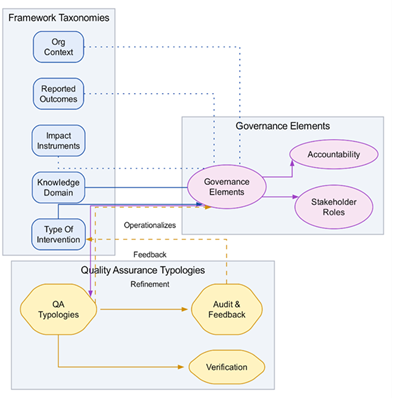Synthesizing Frameworks for Ensuring Timely and Reliable Data Collection in Dispersed Smallholder Value Chains
Main Article Content
Abstract
Reliable and timely data is critical for monitoring impacts and informing poverty reduction interventions in agri-food value chains, but traditional methods are limited in the context of widely disbursed smallholder networks with logistical, contextual, and/or capacity-related challenges. This paper presents categories to draw attention to the issues of robustness and scalability of assembly-line data collection and marries theoretical perspectives from impact assessment and data quality assurance literature to explore it. Building on established schemas for the categorization of VCS actors’ participation and typologies of verification concepts, the article introduces an integrative, theory-grounded model focusing on governance fit, local ownership and adaptive verification. It spans the entire life cycle of data, from the development of a survey instrument to post-survey auditing, and is tailored to the resource-limited rural enterprise environments. General conclusions are that the content of the framework is well balanced and complete, strong relevance is demonstrated in a wide variety of application contexts and best-practice criteria are addressed. The synthesis offers bridges across theory and practice and outlines explicit details for how sustainable and high-integrity monitoring systems can be introduced into smallholder VC systems. The primary value-added is a pragmatic guide to how businesses and policymakers can integrate robust, contextually-responsive data collection and assurance into their operations and delivery in a way that allows us to impact both the empowerment of suppliers and the effectiveness of development interventions.
Article Details

This work is licensed under a Creative Commons Attribution-ShareAlike 4.0 International License.

